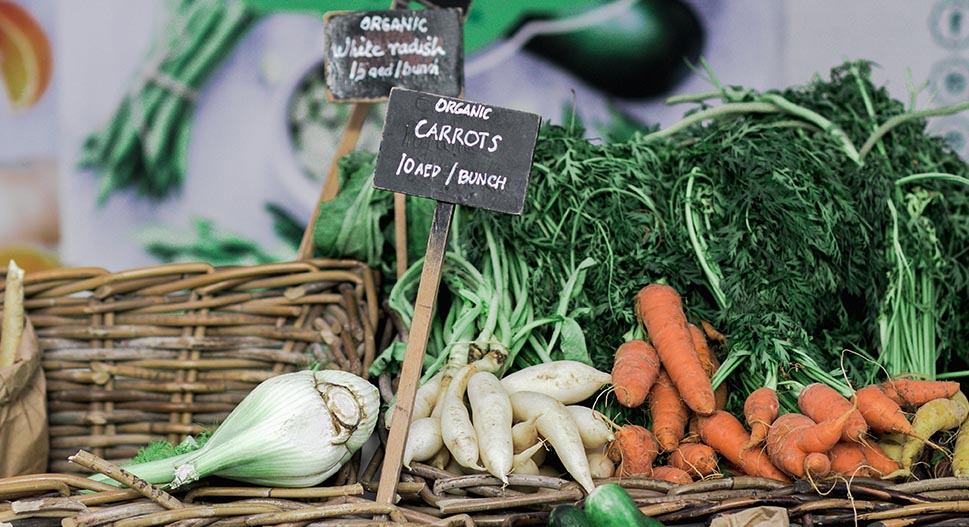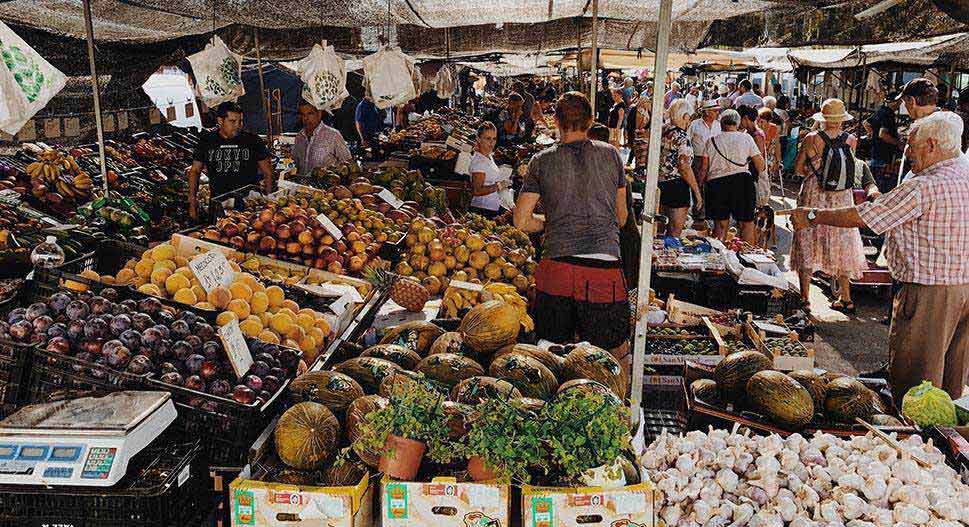
By Linia Patel
The food choices you make every day have a profound impact on your own health, but also the health of the environment. Each time you decide to purchase and consume a food, you are making a choice about the types of foods you want on the supermarket shelves, served to you in restaurants and ultimately a choice about the world’s food system. So that means YOU as a food consumer play the most important role in food sustainability.
Setting the scene
“Sustainable nutrition”, “eating green”, “eating for the planet”... These buzz phrases are being thrown about a lot now-a-days. What do they actually mean? And what can you do to eat a diet that is healthy for you and healthy for the planet?
There is no legal “sustainable food” definition although some aspects, such as the terms “organic” and “Fairtrade” are well known and clearly defined. In terms of foods having environmental impact we know that the main culprits are livestock, which account for half of all green-house gases. Shifting Western diets to include less processed food and meat, and more fruits and vegetables would be of benefit for us and the environment. However, it’s not quite as simple as getting all pedantic about particular foods. Genetically modified seeds, pesticide use, following faddy food trends and food waste all matter too.
Genetically modified (GM) foods for example are produced from plants which have had their genetic make-up tweaked in the laboratory. This is done to increase the yield of a crop or allow the plant to exist in a more hostile environment than normal (e.g. extreme weather). GM foods are highly controversial and the extent to which they can help or harm humans and the environment is widely debated. Food waste also has a massive carbon footprint. On average in the UK we throw away 20% of the fruit and vegetables we buy. Last year alone, we threw away £ 13 billion worth of food. Research suggests that if we reduced our food waste by just half in the UK we would reduce out food imports and growing by 30 – 40%.
What is a sustainable diet?
Food sustainability therefore encompasses all aspects of production as well consumption. “Green eating” is not exclusive to food groups – but more about adopting a sustainable (pun-intended) way of living. One person’s definition of food sustainability may mean reducing food waste, being more mindful of shopping habits (i.e. eating in season and local produce). Yet, another may be going vegan and eating only organic. While these food values are very different, each has defined a lifestyle that works for them that has a positive impact on the food system and therefore the environment.
Practical sustainable diet tips
Follow these simple, straightforward tips to eat better for your health and the environment.
-
EAT A VARIETY OF FOOD. Meat eater or vegan a diverse diet is key. Nutritionally, mixing it up means you get more nutrients and keep it interesting and environmentally you create a demand for a more diverse landscape.
-
TAP INTO PLANT POWER. The number one thing you can do to be a more sustainable eater is to put more plants on your plate. Bonus is that is helps your health too. Make sure you try and eat in season and eat locally grown produce instead of fruits and vegetables that are flown across the world.
-
WASTE LESS. Have leftovers? Challenge yourself and make sure you find a way of using them up (soups or stews). Try and plan your shopping better so that you don’t have to throw away any food. Plan meals to reduce waste, freeze what you don’t use, and buy only what you need.
-
MODERATE YOUR MEAT CONSUMPTION. Adopting a sustainable diet doesn’t mean you have to become a vegetarian or vegan, it just means that you need to be mindful of your animal food consumption. Focus on the source and quality of the animal foods you consume also. Start including more plant protein like beans and lentils in your diet. Consider having a meat free meal or a meat free day each week.
-
EAT LESS JUNK. Very processed foods tend to be more resource intensive to produce and often contain high levels of sugar, fat and salt which if eaten too much can cause weight gain and increase your risk of obesity. Keeping your waistline in-check benefits both your health and the environment.
-
REVIEW YOUR SHOPPING HABIT. Be mindful of your food choices; buy just enough, not too much. The largest contributor to food waste is during production, however as a consumer you control how much food your household wastes. Support local farmers and by buying in-season, local produce. Check out food labels carefully and look for the country of origin (think “food miles”) fish certification (e.g. tuna) and “Fairtrade” (e.g. coffee, chocolate), “GM” and also always be mindful about the levels of fat, sugar and salt.
Additional resources
The organisation ‘Sustain’ produces practical advice on eating sustainably, including seven guiding principles; https://www.sustainweb.org/pdf/SFG_Consumers.pdf
Check out the British Dietetic Association (BDA) Sustainable Diet policy and the Plant-based diet Food Fact Sheet at https://www.bda.uk.com/ foodfacts/plant-based_diet
References available on request.

































































